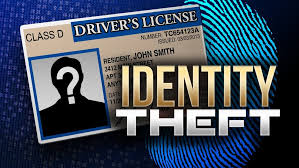
David Rice, COO of DiamondIT, is technically sophisticated and knows how to protect his personal and professional data.
But not long ago, David found that he had become a victim of identity theft.
Here is the rub. People do not always have control over their personal data.
Today the news is rife with stories about institutions such as Marriott, Home Depot, and Yahoo that are breached and as such, credit card numbers and social security numbers can be stolen by cybercriminals, putting millions, if not billions of people in significant risk.
- In 2017, there were 1,579 data breaches of various organizations including Equifax, which totaled to 578 million individual records.
- Identity theft occurs when someone gains unauthorized access to your personally identifying information – such as your name, Social Security Number (SSN), or bank account information – and uses it to commit fraud or other crimes.
It All Started with a Credit Denial Letter from a Store He Rarely Visits:
It all started when David received a credit denial letter from Lowes Hardware store. “I had not been to a Lowes store for many years so obviously this was very suspicious,” David said. The good news was the Lowes store contacted him to let him know they thought someone was posing as David. “They felt the whole transaction seemed ‘fishy’,” David said.
A few da
“In the case of identity theft, you can do a permanent hold,” David confirmed.
But his problems didn’t end there. After calling the credit agencies, David was asked by Sprint to go a step further and file a police report to release him of the liability from the four lines he didn’t open.
David went to the police department and after standing in line for some time, the police informed him they receive reports of identity theft frequently and have an extensive backlog. Nevertheless, David filed the report and extricated himself from the Sprint contract.
Just when he thought he was done with the matter, he received a letter from Target letting him know he had applied for lines of credit.
Except he didn’t.
Upon calling Target, they confirmed the thieves had possession of his driver’s license and social security numbers, as well as his date of birth: the three items one needs for opening credit.
But there was one bright spot: the culprit had just recently tried to open the lines of credit and therefore the store would have the thief on their surveillance cameras. Target informed David that they would be happy to share the tapes with the police upon request.
Thinking he had caught a break, David immediately called the police, excited by the prospect of catching the culprit. Unfortunately, the police informed him that he would need to fill out more forms and mail them into the department. Ultimately, the police would not confirm if they would ask for the tapes; if there was a need, the police would be in touch. The tapes most likely were overwritten before the paperwork reached the department.
“The reality is, I don’t think the police will ever view the tapes because there are so many cases of identity theft,” said David. Additionally, since David didn’t suffer financially from these incidents, his case is unlikely to be considered a priority versus other cases of identity theft.
While it’s true that not every case of identity theft will be investigated and/or solved, it is still important to be vigilant and report the crime to both protect yourself and inform law enforcement agencies of criminal activity.
Here are some tips if you think your identity has been compromised:
- File a report with your local law enforcement and also with the Federal Trade Commission (FTC) at IdentityTheft.gov. You can also call the FTC Identity Theft Hotline at 1-877-438-4338 or TTY 1-866-653-4261.
- Contact one or all the credit reporting agencies to put a 90-day hold on your credit profiles so stores and institutions are required to contact you personally before allowing credit to be opened in your name.
- Make sure to check your credit report to remove any fraudulent charges.
- You can also place a fraud alert on your credit cards so you are notified if your cards get used in a manner inconsistent with your typical use.
- Contact the stores/institutions where you think your identity was used fraudulently to help clear your name.
- Cancel any credit cards, including store credit cards, and open new ones if you think your accounts are in jeopardy.
- You may have to get a get a new Driver’s License or Social Security if either of the numbers are breached.
It is important to be vigilant in developing plans and guideline to secure the safety and integrity of your data and identity. Contact DiamondIT at 877-716-8324 to learn more about security training, assessment, and implementation services to build out your lines of defense and prevent cybercrime.
